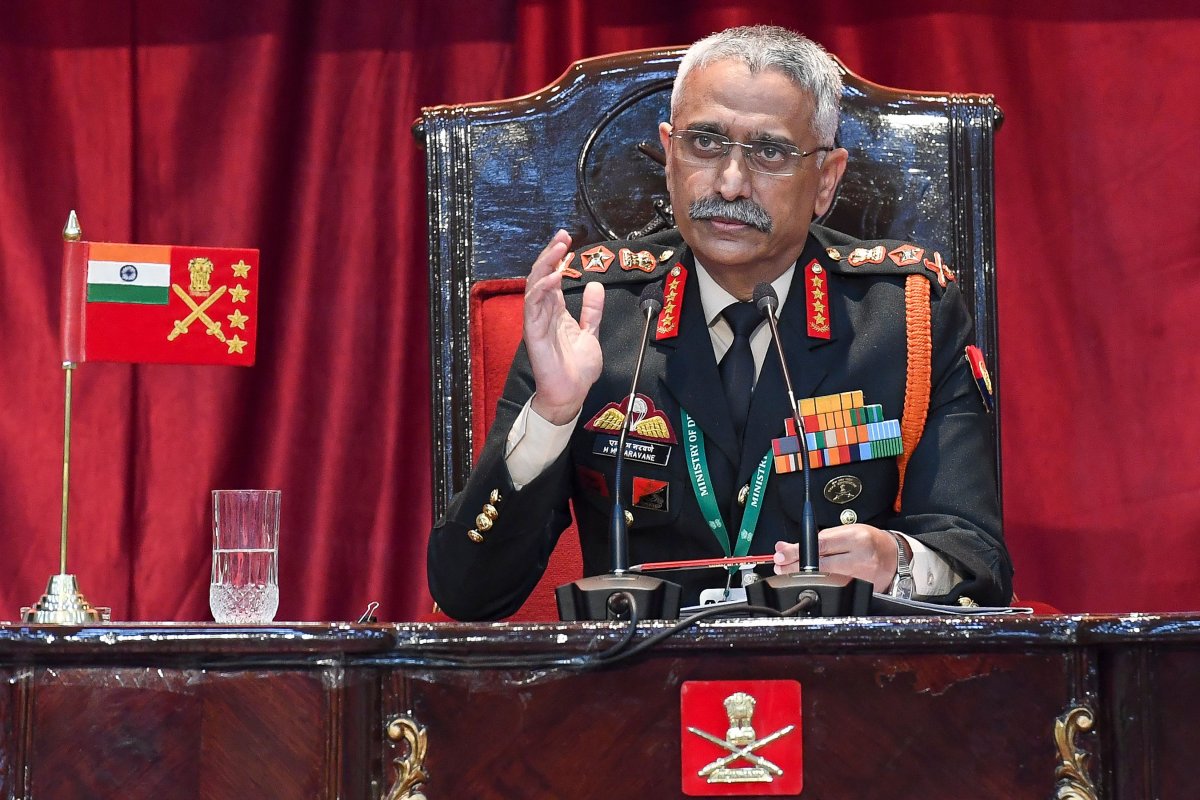-
Deadly Border Clash Exposed China As ‘No. 1 Threat’—India Army General - February 13, 2024
-
A portion of Mulholland Drive, damaged by mudslides in winter storms, reopens - May 26, 2024
-
‘Maybe You Don’t Want to Win’ - May 26, 2024
-
Donald Trump Putting Law Enforcement in Danger: Attorney - May 26, 2024
-
Avoid the waters of these 5 L.A. County beaches this holiday weekend, public health officials say - May 26, 2024
-
Bawdy Comedy ‘Anora’ Wins Palme d’Or at Cannes Film Festival - May 26, 2024
-
Map Shows Heat Wave Zone Spread Into Five New States - May 26, 2024
-
Azusa police arrest suspected slingshot-wielding vandal - May 25, 2024
-
Donald Trump Hammers Judge Ahead of Jury Instructions - May 25, 2024
-
Sometimes U.S. and U.K. Politics Seem in Lock Step. Not This Year. - May 25, 2024
Deadly Border Clash Exposed China As ‘No. 1 Threat’—India Army General
India’s former army chief, General Manoj Naravane, has said a border clash in 2020 in the country’s Ladakh region exposed China as a serious threat.
“What has happened is not a bad thing. Because for a very long time, we were shying away from calling out China as the No. 1 threat,” Naravane said Saturday, speaking at the WordsCount literary festival held at Mayo College in the Indian city of Ajmer.
The former army chief’s comments come as India insists on restoring the status quo that had existed at the border with China in Ladakh before April 2020. Beijing moved a large group of People’s Liberation Army soldiers to the border between April and June 2020, initiating the ongoing stand-off between China and India.
A violent skirmish in June of that year involving Indian and Chinese patrols in a Himalayan ravine was the first deadly clash along the disputed border in nearly half a century. Twenty Indian troops and at least four Chinese soldiers died.

Prakhash Singh/AFP via Getty
A large number of Indian and Chinese soldiers, by some estimates over 100,000, remain deployed in the Ladakh region, some of which is controlled by Beijing.
“We were always hoping that by being decent and conciliatory and agreeing to what they are saying, they would return that favor in full measure and also give us the respect that is due. So obviously that was not coming…as a result of activities of 2020, we are more focused now on where the threat actually lies,” Naravane said.
“Why they did what they did is a question which continues to confound us. Especially because they did it when the world was in the claws of the COVID pandemic,” Naravane added.
He said that the decision to escalate tensions with India is likely to have come from the very top of China’s political leadership.
“Had to be something which had to be coordinated much higher up. Whether that much higher up is at the level of their Western Theater Command or right up to the Politburo (of the Chinese Communist Party), that time will tell,” he said.
Newsweek has contacted the Chinese embassy in New Delhi for comment.
The U.S. increasingly considers New Delhi a bulwark against Beijing’s aggressive stance against neighbors in the Indo-Pacific. On Tuesday, India’s current army chief, Manoj Pande, started a four-day official trip to the U.S., during which he is set to visit the Pentagon and meet the Chief of Staff of the Army General Randy George, India’s state broadcaster DD News reported on Monday.
Pande will discuss the global threat perception, future force deployment and modernization, co-production of weapon systems, and other topics, according to DD News.
India’s home affairs minister said on Saturday that China had tried to repeat the 1962 war between the countries in 2020, but New Delhi successfully deterred Beijing’s aggression.
“During this period, when the COVID pandemic was raging, China showed its real face, like in 1962. We stood firmly to it and didn’t lose an inch of land,” Shah said in parliament.
Uncommon Knowledge
Newsweek is committed to challenging conventional wisdom and finding connections in the search for common ground.
Newsweek is committed to challenging conventional wisdom and finding connections in the search for common ground.
Source link































